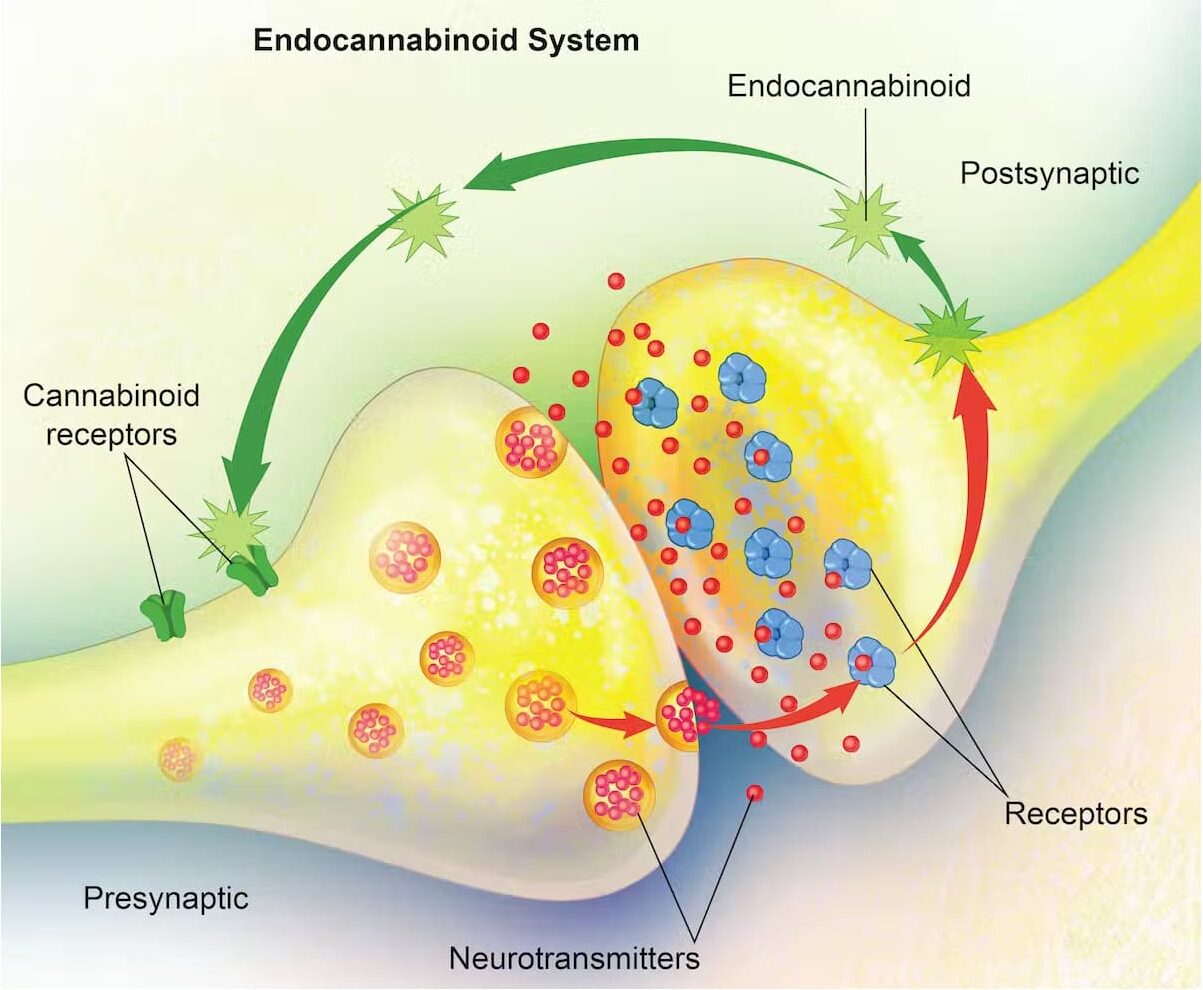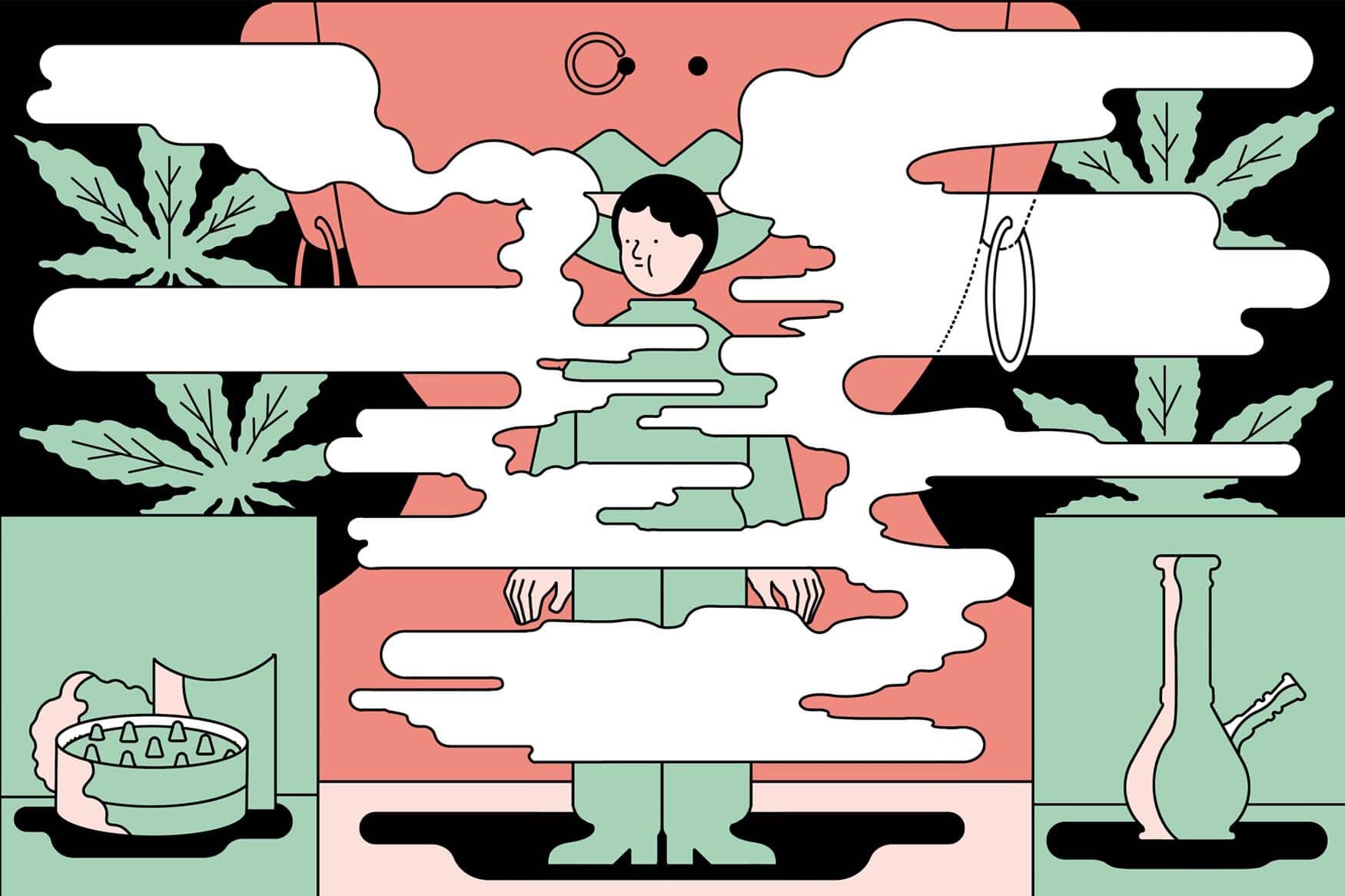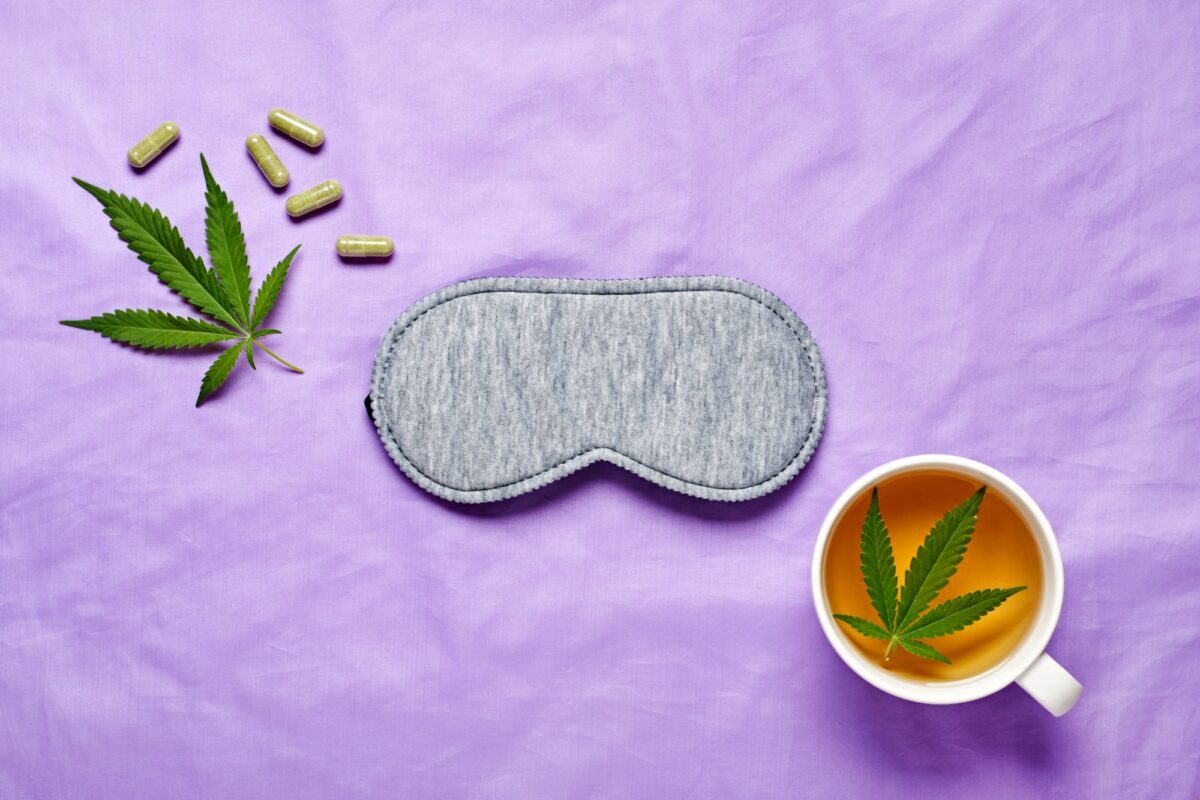CBD, Hemp Benefits, Pet Health
You’re Not Tired — You’re Cannabinoid Deficient
How CBD Interacts with Your Endocannabinoid System and What That Actually Means for Your Body
- So What Is the ECS, Exactly?
- Enter CBD
- Signs You Might Be Cannabinoid Deficient
- What You Can Do About It
- How to Tune In: Finding the Right CBD Routine
- The Bottom Line
You’re dragging through the day. You’re tired, unfocused, maybe a little cranky. But what if your problem isn’t sleep, caffeine, or your phone addiction?
What if it’s a chemical imbalance your body was never taught to fix?
Welcome to the Endocannabinoid System (ECS) — your body’s lesser-known, but absolutely essential regulatory network. Discovered only in the 1990s, the ECS is a master controller of mood, pain, sleep, stress, and even appetite. It’s like the body’s own Wi-Fi network, keeping systems connected and functioning smoothly.
So What Is the ECS, Exactly?
The ECS consists of:
- Endocannabinoids: natural compounds your body makes (like anandamide aka “the bliss molecule”)
- Cannabinoid receptors: mainly CB1 (in the brain) and CB2 (in the body/immune system)
- Enzymes: that break down endocannabinoids once they’ve done their job
It’s your body’s built-in chill mechanism. When it’s working right, you feel balanced. When it’s out of whack? Think anxiety, insomnia, chronic inflammation, poor focus, and yes—constant fatigue.
Enter CBD
CBD (cannabidiol) doesn’t directly bind to cannabinoid receptors like THC does. Instead, it modulates them and helps your body use its own endocannabinoids more efficiently. It inhibits the enzymes that break down anandamide, letting your natural feel-good chemicals stick around longer.
The result? A smoother ride. Less static on the signal. More you.

Signs You Might Be Cannabinoid Deficient
While the science is still catching up, some researchers have proposed Clinical Endocannabinoid Deficiency (CECD) as a real thing. Possible signs:
- Trouble sleeping
- Chronic stress or anxiety
- Digestive issues
- Inflammation
- Mood swings
Sound familiar?
What You Can Do About It
This isn’t just a plug for CBD (okay, it kind of is). But beyond supplements, you can support your ECS through:
Sleep (it all comes back to this)
Regular exercise (which increases endocannabinoid levels)
Omega-3 fatty acids (precursors to endocannabinoids)
Mindful practices like meditation or breathwork
CBD Supplements Try CBD Tinctures, Gummies, Honey Sticks, or another CBD infused treat.

How to Tune In: Finding the Right CBD Routine
Not all CBD is created equal — and not everyone responds to it the same way. Your ideal dose depends on your body weight, metabolism, stress levels, and even your unique ECS tone (yes, that’s a thing).
Here’s how to dial it in:
- Start Low & Go Slow: Begin with a small dose (e.g., 5–10mg) and increase gradually.
- Stay Consistent: CBD builds up over time. Give it at least 1–2 weeks before judging the effects.
- Track Your Experience: Keep a journal of how you feel — sleep quality, mood, pain levels, etc.
- Choose Quality Products: Look for third-party tested CBD with clear labeling and no mystery ingredients.
Think of CBD less like a shot of espresso and more like tuning a guitar — subtle adjustments can make everything sound (and feel) better.
The Bottom Line
You might not be lazy. You might not be broken. You might just be out of tune.
CBD isn’t magic, but it is a tool — one that helps many people regain balance without the side effects of pharmaceuticals. Your body already wants to heal. Sometimes it just needs a little bandwidth.
Disclaimer: This blog is for informational purposes only and is not a substitute for medical advice. Always consult your healthcare provider before starting any supplement regimen.



